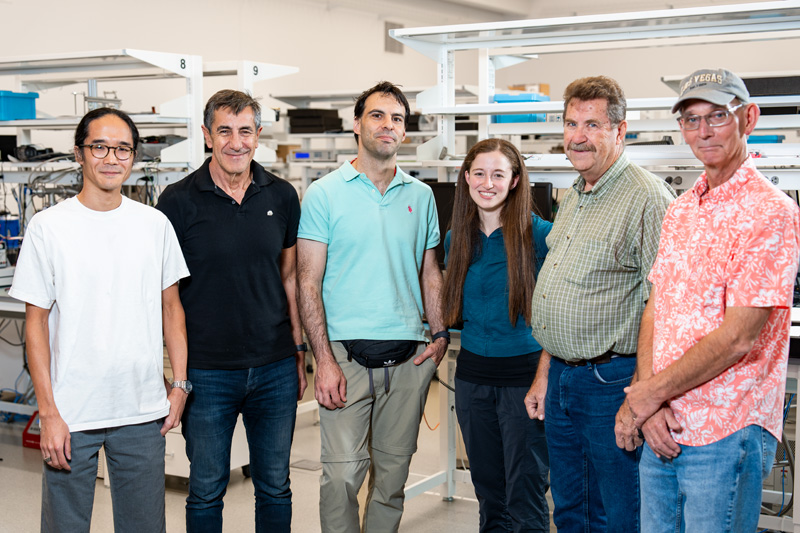Fermilab QICK Box Streamlines Quantum Control with Integrated Hardware and Software

Introducing the QICK Box: A Lab in a Box
The QICK box is an all-in-one system designed to streamline quantum control and measurement. Building on the foundation of the original QICK—a combination of a field-programmable gate array (FPGA) board, radio frequency circuit boards, and open-source software—the QICK box enhances functionality by integrating additional hardware like amplifiers, filters, and cabling into a compact, customizable unit.
“Instead of purchasing a vendor board along with numerous amplifiers, filters, and other necessary components, researchers can utilize the QICK box, which comes pre-equipped with everything, is user-friendly, and fully optimized,” explained Sho Uemura, Fermilab engineering physicist and lead developer of QICK software.
The system’s modular design allows researchers to mix and match elements such as radio and low-frequency circuit boards and incorporate custom daughter boards. This adaptability ensures the QICK box stays up-to-date with advancements in quantum technology.
From Research to Market
Engineered to boost the signal-to-noise ratio and refine qubit control, the device allows researchers to amplify and filter signals with greater precision and accuracy. Additionally, the Fermilab team has unveiled QICK version 2.0, featuring upgraded firmware and software, including a new core processor designed to enhance quantum control capabilities.
“QICK is exceptionally versatile because the quantum field is evolving at a remarkable pace,” said Travis Humble, director of Oak Ridge National Laboratory’s Quantum Science Center. “QICK is entering a critical phase of research where hardware designs are expected to change significantly, unlike many other companies that are not embracing the transformative advancements the QICK box can support.”
Collaborative Development for Evolving Needs
Launched in 2020, the QICK initiative began as a collaboration with researchers from the University of Chicago and has since expanded to include prominent institutions like Yale, Stanford, and Princeton. Researchers such as Professor Michael Hatridge from Yale are using QICK to advance quantum experiments and explore techniques for scaling to larger systems.
“Our objective is to demonstrate more efficient ways to transition from small-scale lab experiments with a few qubits to larger, more complex machines,” said Hatridge. He highlighted the system’s cost-effectiveness and high performance, emphasizing its adaptability to support increasingly sophisticated experiments.
What sets QICK apart is its focus on user needs. Fermilab engineer Gustavo Cancelo, who oversees development and commercialization efforts, acknowledged the challenge of designing for a rapidly changing field. “We work hard to anticipate future needs and include functionalities that will support users down the line. Quantum devices are constantly evolving,” Cancelo explained.
A Catalyst for Scientific Discovery
Since its launch, QICK has transformed from a niche tool into a widely utilized platform, boasting over 350 registered users globally. The addition of the QICK box is expected to expand its adoption further, offering researchers an accessible and powerful tool for advancing quantum information science.
For those exploring commercialization opportunities, Fermilab’s Office of Partnerships and Technology Transfer offers detailed guidance. The QICK initiative is supported through Fermilab’s partnership in the Quantum Science Center, a key part of the Department of Energy’s National Quantum Initiative.